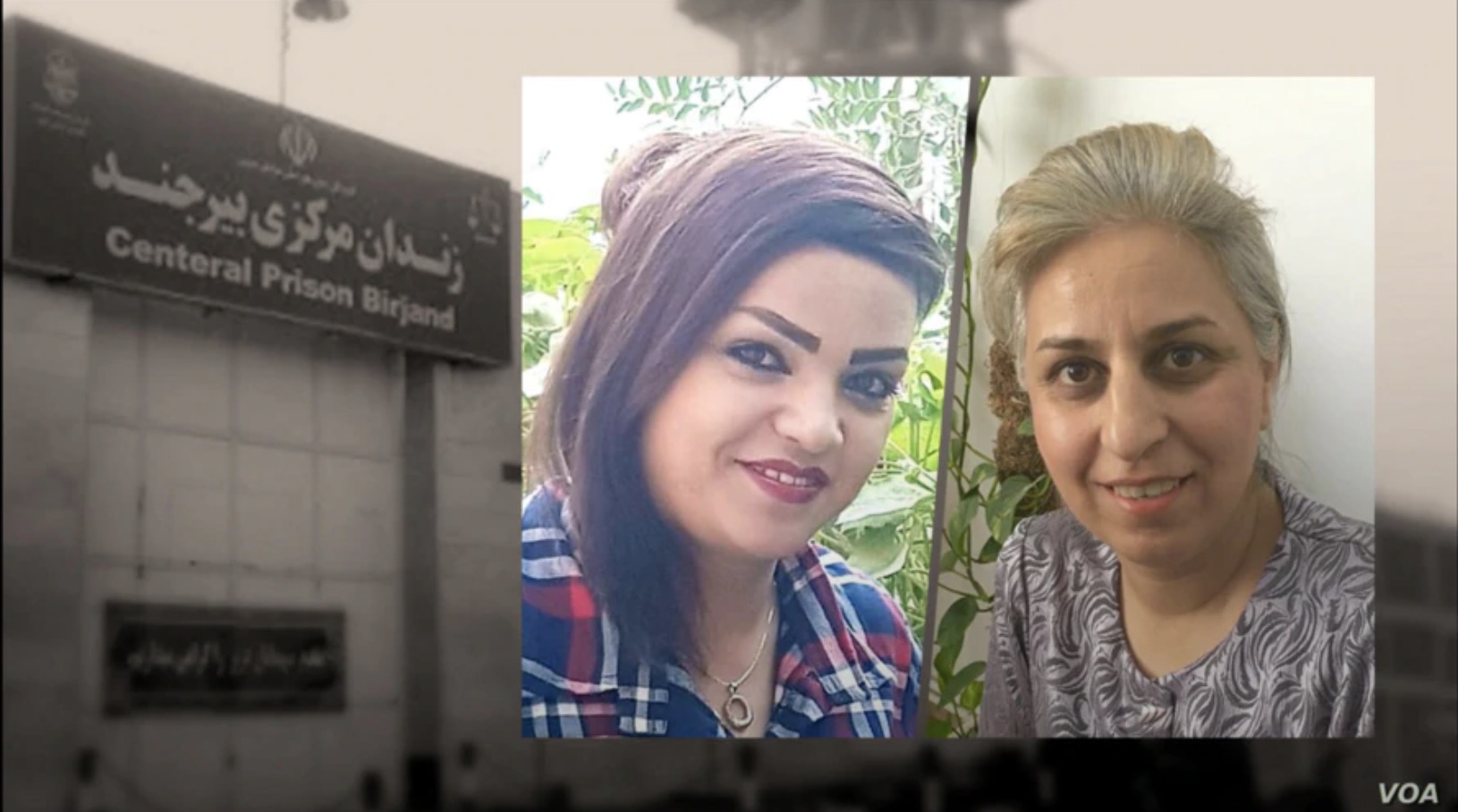Source: www.voanews.com
Michael Lipin, Ramin Haghjoo

WASHINGTON – Two Iranian Baha’i women have reported to a prison in eastern Iran to begin serving sentences for peacefully practicing their faith after authorities apparently ignored appeals to spare them from potential coronavirus exposure in jail, according to a knowledgeable source.
Speaking to VOA Persian in a Tuesday interview from Iran, the source said Arezoo Mohammadi and Banafsheh Mokhtari voluntarily presented themselves at the prison in Birjand a day earlier.
The two women had been among a group of eight Baha’is from the region who received a Sept. 28 summons to report to the prison by Oct. 10.
Earlier this month, a source told VOA that an appellate court had issued a Sept. 8 ruling sentencing the six women and two men to prison terms of 15 months to two years for allegedly disrupting national security and spreading anti-government propaganda in relation to the practice of their faith.
Iran’s ruling Shiite clerics consider the nation’s estimated 300,000 Baha’is to be heretics with no religion, and routinely arrest them for engaging in faith-related activities, accusing them of national security offenses without disclosing evidence. Most are charged with “propagation” of the Baha’i faith, which authorities consider to be a form of anti-government propaganda.
The source who spoke to VOA this week said Mokhtari suffers from cervical and lumbar disc diseases, characterized by neck pain and lower back pain respectively, and had sent a request to the Iranian judiciary’s enforcement branch to have her sentence postponed for medical reasons. However, the source said judicial authorities in Birjand rejected her request.
Mokhtari and Mohammadi decided to accept the prison summons as they believed they would be compelled to do so eventually and preferred to resolve their status sooner rather than later, the source said. Iranians who resist an initial prison summons can receive several follow-up notices over a period of weeks but also risk being arrested and sent to jail at any time.
Iranian rights groups have said Mohammadi was sentenced to 18 months in prison and Mokhtari to 15 months.
VOA’s source said five of the remaining six Baha’is who received the Sept. 28 prison summons also have sent letters to the Iranian judiciary asking for their sentences to be postponed due to the risk of contracting the coronavirus in prison. The source identified the five as Nasrin Ghadiri, Ataollah Malaki, Ataollah Malaki’s daughter, Roya Malaki, Saeed Malaki and Atieh Salehi, and said they were awaiting responses to their letters.
It was not clear whether the remaining member of the group, Farzaneh Dimi, has made a similar request to Iranian authorities for a delay in her sentence.
There has been no word from Iranian authorities in state media about the cases of the eight Baha’is over the past month.
Iran’s coronavirus outbreak, the worst in the Middle East, has prompted months of international concern about the plight of Iranian prisoners of conscience who have been imprisoned in coronavirus-infested jails.
In an Oct. 6 statement, U.N. High Commissioner for Human Rights Michelle Bachelet said the Iranian prison system’s chronic overcrowding and poor sanitary conditions have worsened during the pandemic.
“I call for [Iran’s] unconditional release of human rights defenders, lawyers, political prisoners, peaceful protesters and all other individuals deprived of their liberty for expressing their views or otherwise exercising their rights,” Bachelet said. “It is particularly important to rectify such injustices at a time when COVID-19 is coursing through Iran’s prisons.”
A week after the call of @UNHumanrights @mbachelet for #Iran to release all #prisonersofconscience, #Bahai-s remain behind bars, and more are jailed: 3 in #Birjand, 1 in #Shiraz and 1 in #Isfahan who was returned after a leave. More injustice during an abysmal #COVID19 pandemic! https://t.co/FmhGeiKF3h
— Diane Alai (@DianeAlai) October 14, 2020
In an Oct. 14 tweet, the Baha’i International Community’s Geneva-based representative to the U.N., Diane Alai, said Iran had jailed four more Baha’is in the week since Bachelet’s appeal.
“More injustice during an abysmal COVID-19 pandemic,” Alai wrote.
The eight Baha’i defendants sentenced by the Iranian appellate court last month were part of a wider group of 18 Baha’is whose homes in Birjand were raided and whose belongings were confiscated by Iranian security agents in October 2017. The raids coincided with a religious holiday observed by Baha’is around the world.
In a May briefing with reporters, U.S. Ambassador for International Religious Freedom Sam Brownback said he was “particularly” concerned by Iran’s treatment of its Baha’i prisoners.
This article originated in VOA’s Persian Service. Mehdi Jedinia of VOA’s Extremism Watch Desk contributed. Click here for the original Persian version of the story.
Leave a Reply